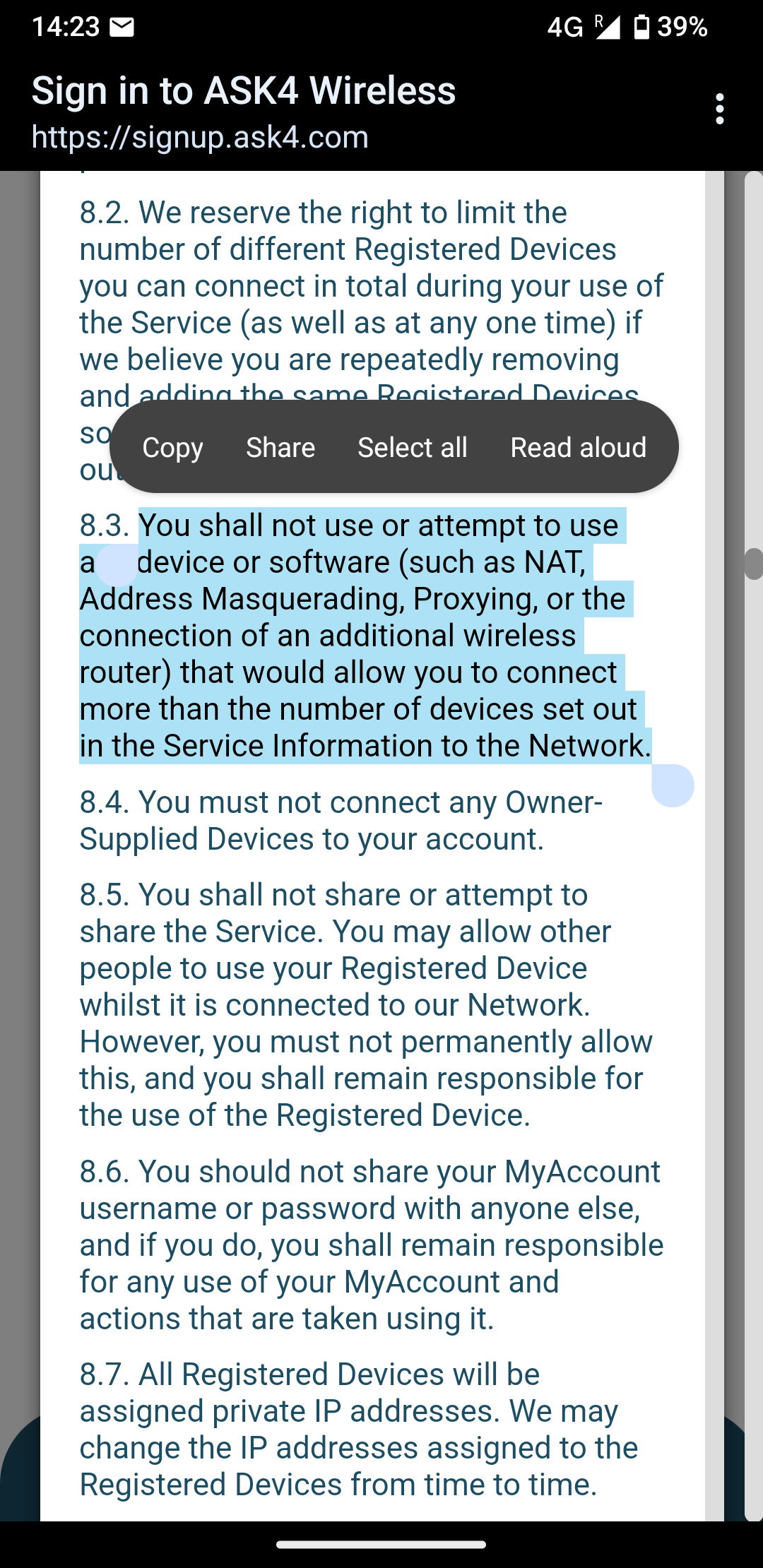this post was submitted on 07 Sep 2024
472 points (92.6% liked)
Technology
62902 readers
4433 users here now
This is a most excellent place for technology news and articles.
Our Rules
- Follow the lemmy.world rules.
- Only tech related content.
- Be excellent to each other!
- Mod approved content bots can post up to 10 articles per day.
- Threads asking for personal tech support may be deleted.
- Politics threads may be removed.
- No memes allowed as posts, OK to post as comments.
- Only approved bots from the list below, to ask if your bot can be added please contact us.
- Check for duplicates before posting, duplicates may be removed
- Accounts 7 days and younger will have their posts automatically removed.
Approved Bots
founded 2 years ago
MODERATORS
you are viewing a single comment's thread
view the rest of the comments
view the rest of the comments

This is pretty typical for universities. They don’t want the airwaves clogged, doubling up NAT can lead to networking wonkiness, and they don’t want you giving university network access to unauthorized folks with an open AP.
When you say VR streaming, you just mean wireless from your PC to the headset, right? There’s a chance you could do that with an offline wireless router if the VR experiences you’re looking to play are single player.
Yep, that's what I mean with VR streaming. The PC connects thru eth to the router, and the headset is connected to the router's AP via wifi. I get the point about unauthorized access, but I set strong passwords and never share them. I think this clause is more about preventing me from connecting more than one device to the internet, which they want to charge me for if I do. Obviously having my own AP would allow me to easily circumvent that.
Add a wireless AP to your pc and create an adhoc wifi network for your vr to connect to your pc directly.
PC with 2 NICs would solve this surely? 1 port to the building for Internet, the other to your offline router which connects to your headset wirelessly